You just had gastric sleeve surgery and you’re excited to finally start losing weight. After following your pre-surgery recommendations, you’re ready for the reward of weight loss.
But what if losing weight takes longer than you expect? Or, what if you’re not losing weight after gastric sleeve surgery at all? These are valid concerns. Let’s start by learning more about gastric sleeve surgery to get a better idea of what to expect.
Gastric sleeve surgery: Benefits and weight loss projections
Gastric sleeve surgery is a popular surgical technique used to achieve significant weight loss in a short amount of time. It is a safe and minimally invasive surgery that removes 80% of the stomach.
No foreign objects are implanted, and no bypass is required. Because the stomach’s gut hormones play a strong role in appetite regulation, gastric sleeve surgery helps decrease appetite and supports weight loss by restricting the amount of food the stomach can hold.
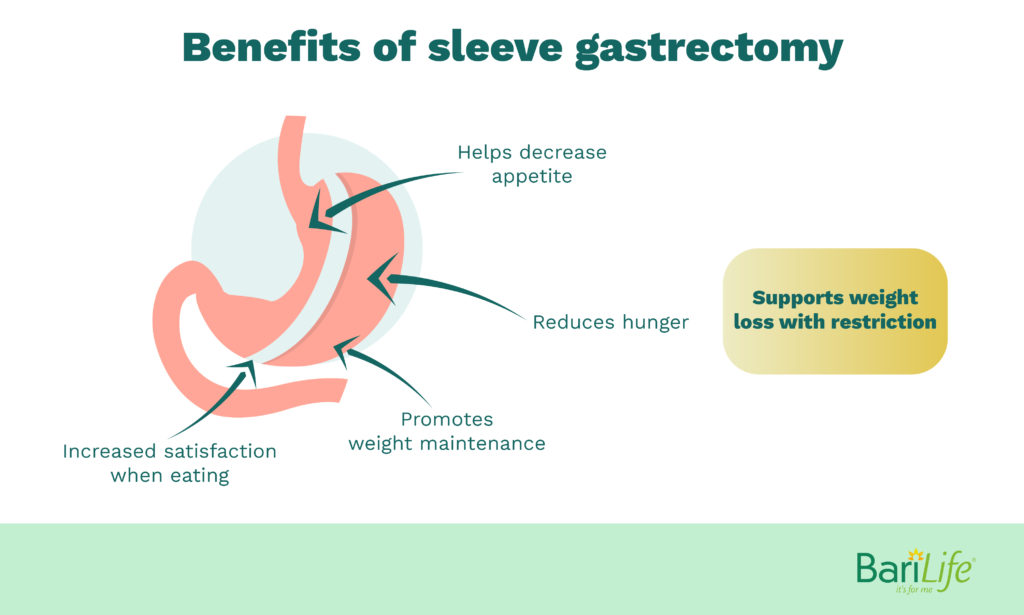
While weight loss is an obvious physical benefit, other gastric sleeve benefits include weight maintenance and a reduction in hunger. According to the American Society for Metabolic and Bariatric Surgery, gastric sleeve surgery impacts the gut hormones and causes desirable changes in the stomach, leading to hunger suppression and increased satisfaction when eating.
So how much weight can you expect to lose after gastric sleeve surgery? Gastric sleeve surgery generally results in about 60% of excess weight loss.
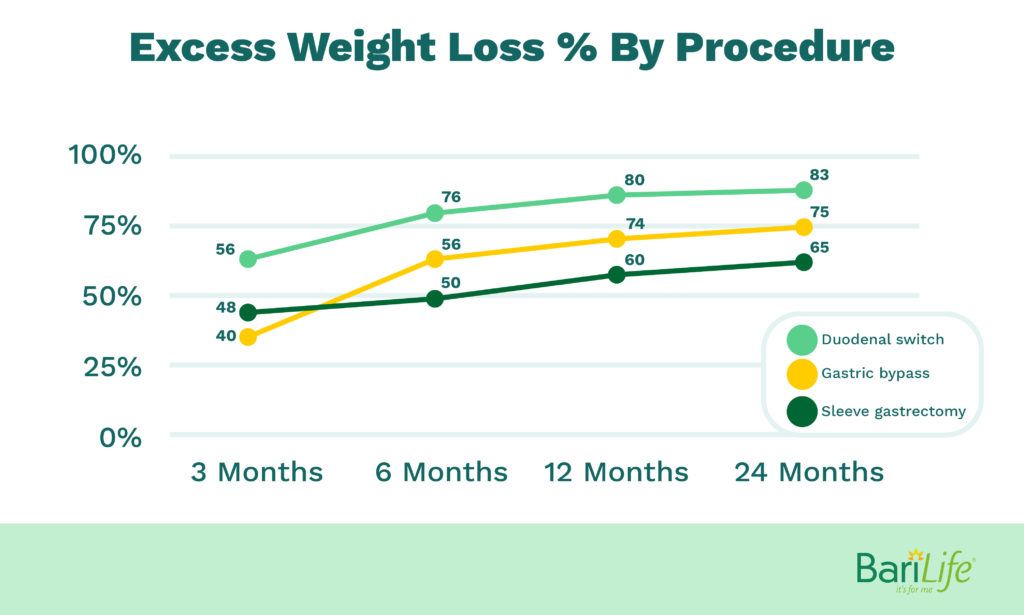
The important number to be aware of is excess weight loss or EWL. EWL is calculated by taking your current weight and subtracting your ideal weight. A great resource to estimate your weight loss after surgery is a calculator that uses your gender, height, and weight to generate an estimated excess weight loss number. Check out the calculator here.
Not losing weight after gastric sleeve surgery: What’s really going on?
A big myth about gastric sleeve surgery is you will lose a tremendous amount of weight immediately. While gastric sleeve surgery helps shed excess body weight safely and gradually over time, the only way to lose strictly fat in a short period of time is liposuction, which is not the goal of gastric sleeve surgery.
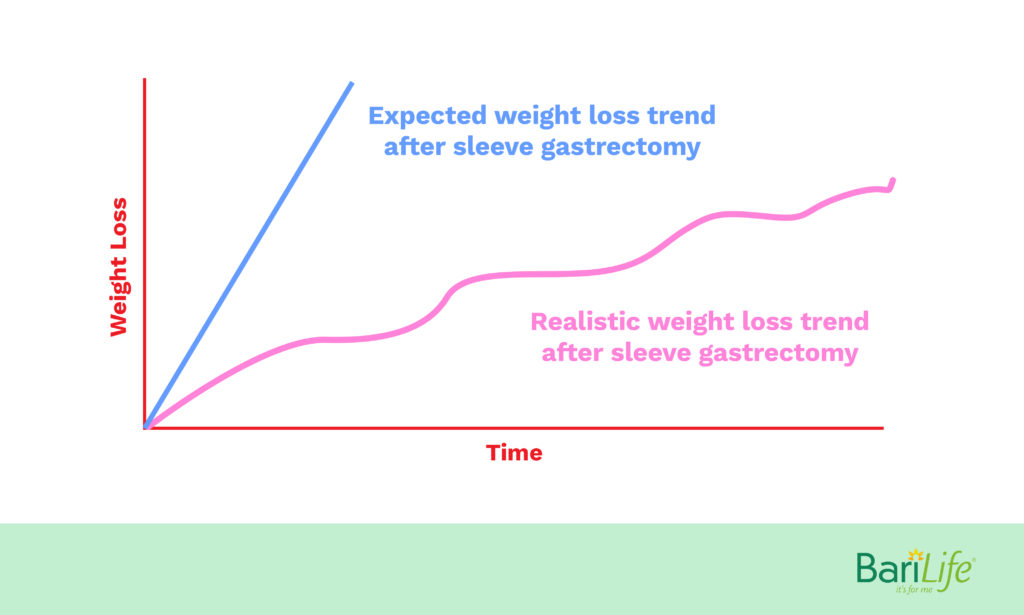
Having realistic expectations and an understanding of what to expect from surgery is important, especially when it comes to weight loss. While not losing weight after gastric sleeve surgery is rare, the timeline of weight loss may be different from what you expect.
To calculate your estimated excess weight loss, use this calculator to get a personalized estimate based on your height, weight, and gender.
Generally, weight loss begins right after surgery, but some patients may not have any weight loss for the first several weeks. As you recover from surgery, you’ll likely notice a decreased appetite, which supports long-term weight loss and maintenance.
With less of an appetite, weight loss becomes more rapid over the weeks and months following surgery. Many patients also notice a variation in food preferences, causing a change in eating habits and healthier food choices long-term.
With a decreased appetite and food preference changes, gastric sleeve surgery provides an effective long-term weight loss strategy. But what if you’re not losing weight after gastric sleeve surgery?
7 reasons you’re not losing weight after gastric sleeve surgery
1. Caloric intake
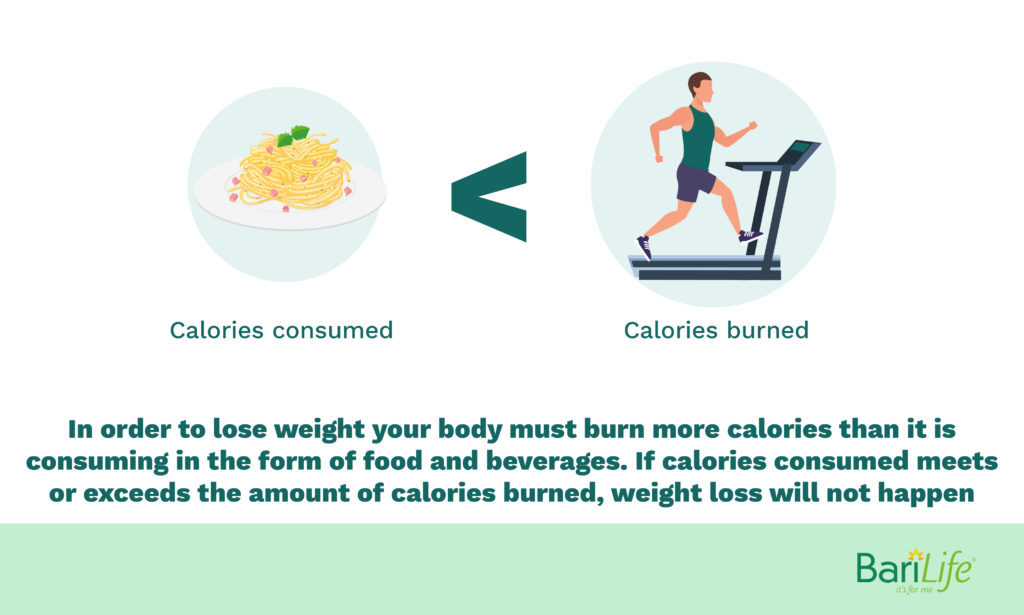
If you’re eating too much, weight loss may stall. Making the right food choices and eating a well-balanced diet helps support weight loss after surgery. It’s also important to adhere to your surgeon’s recommendations following surgery. Examine your diet if you’re not losing weight after gastric sleeve surgery.
2. Not adhering to the recommended diet following surgery
There are specific diet recommendations to follow after surgery. Gastric sleeve surgery decreases stomach size by 75-80%, so a change in diet is essential to prevent overeating. Before surgery, your surgeon likely outlined specific post-surgical diet recommendations. Now is a good time to review them.
Following gastric sleeve surgery, a 4-phase diet should be followed to help your stomach heal.

Stage 1: Liquid diet for 4 weeks
Stage 2: Pureed food for 4 weeks
Stage 3: Soft food for 8 weeks
Stage 4: Stabilization diet until goal weight
Learn more information about the 4-phase post-gastric sleeve surgery diet here. Not losing weight after gastric sleeve surgery is often a diet-related issue so start by looking at your intake.
3. Consuming too many “slider foods”
After surgery, the transition to whole foods can be difficult. If solid foods are not introduced over time, an aversion for certain solid foods can develop and easy-to-eat foods are emphasized instead.
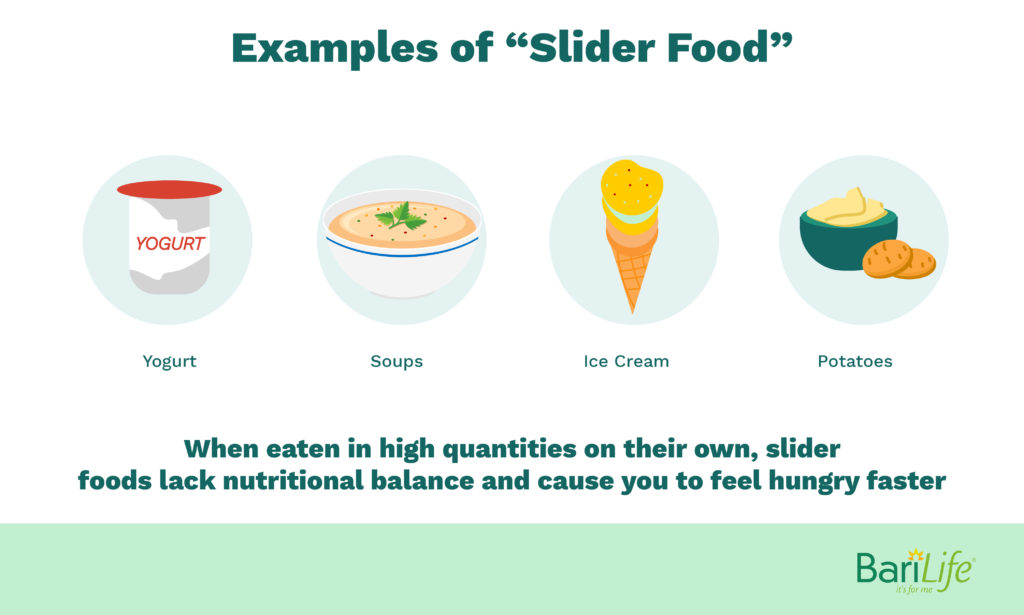
Called slider foods, these foods include yogurt, soups, ice cream, and potatoes. When eaten in high quantities on their own, slider foods lack nutritional balance and cause you to feel hungry faster. Limit your intake of these foods and instead focus on eating whole, solid foods when your phase of the post-surgical diet allows it.
4. Poor water intake
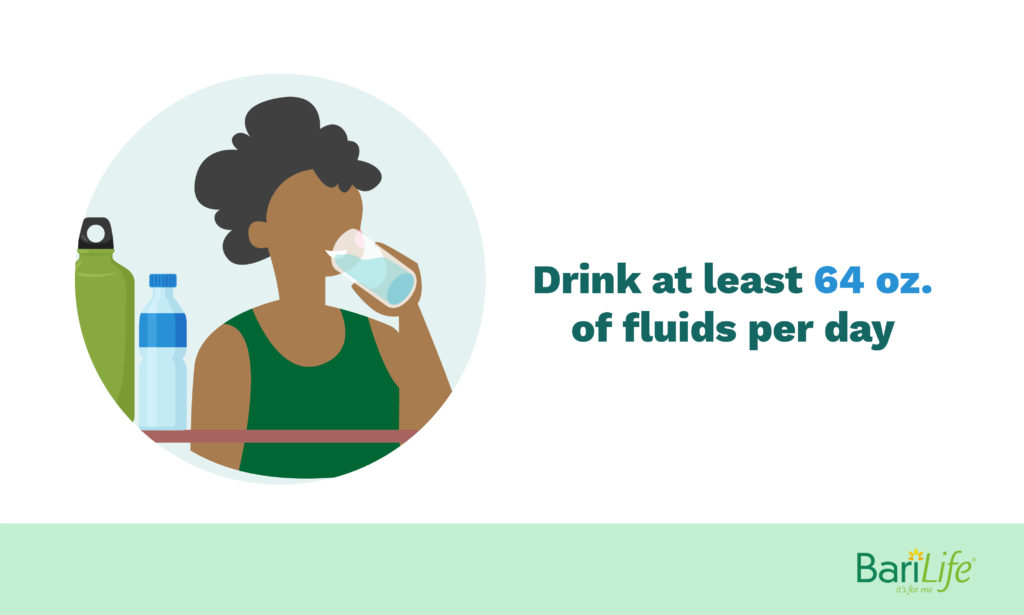
Water supports the healing process in the body after surgery. Drinking enough water also supports weight loss and wards off unwanted health concerns. If plain water isn’t appealing enough, try infusing it with cucumber or fruit.
5. Soda intake
While drinking water is essential to support healing and weight loss, soda should not be consumed as a means of hydration. Carbonation from a soda can cause gas and bloating, in addition to the risk of acid reflux.
With high levels of sugar and empty calories, soda makes weight loss more difficult. The extra sugar from a soda can also trigger cravings for other sugary foods. If you’re not losing weight after gastric sleeve surgery, replace your beverages with water!
6. Not taking recommended supplements
After gastric sleeve surgery, there are new dietary and eating guidelines to follow. Even while following the post-surgical diet, supplementation is necessary and you will need to take a multivitamin for life.

Since the stomach is smaller after surgery, vitamin absorption is reduced, with common deficiencies including Iron, Vitamin B1, B12, D, and A. No one likes to take 10 different pills, which is why Bari Life created a line of products to support your supplementation in an easy-to-take form.
If you’re not losing weight after gastric sleeve surgery, learn more about the importance of post-surgical supplementation here.
7. Not enough physical activity
A sedentary lifestyle is detrimental to your health and wellness. This is especially true following surgery, where light movement can support recovery.
Your surgeon likely encouraged walking just hours after surgery, which helped prevent complications from the procedure, but the benefits of walking extend far beyond your post-surgical days.
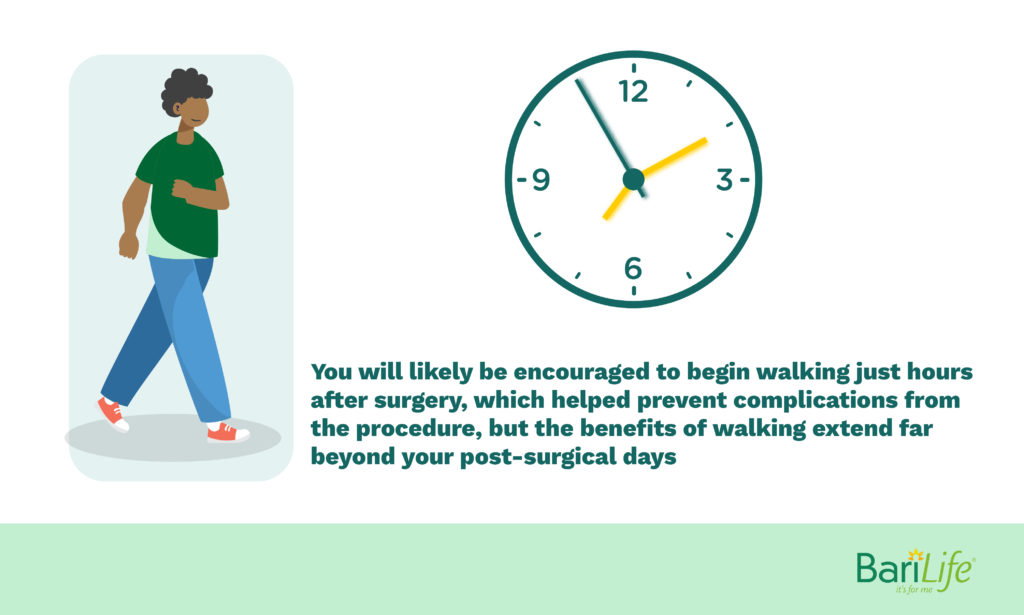
Staying active by walking daily is one of the best ways to support weight loss after gastric sleeve surgery. A sedentary lifestyle is one of the main reasons you may not be not losing weight after gastric sleeve surgery.
While walking and low impact activities are a great way to stay active, more strenuous activities should be avoided until given the okay from your surgeon. Here is a great resource on the stages of recovery and when to restart certain physical activities.
Key takeaways
Weight loss after bariatric surgeries is multi-faceted. It normally comes down to doing a few things right MOST of the time.
It’s important to focus on total calories and total physical activity, but also to give yourself grace.
This isn’t a sprint and you’re trying to make life-long changes to your health. It can’t be done overnight, but you can do something about it every single day.
Use this article as a quick test and evaluate your weight loss and activity based on what you read here. you’ll likely find something you can be more diligent with and then fix the problem to jumpstart your weight loss again!



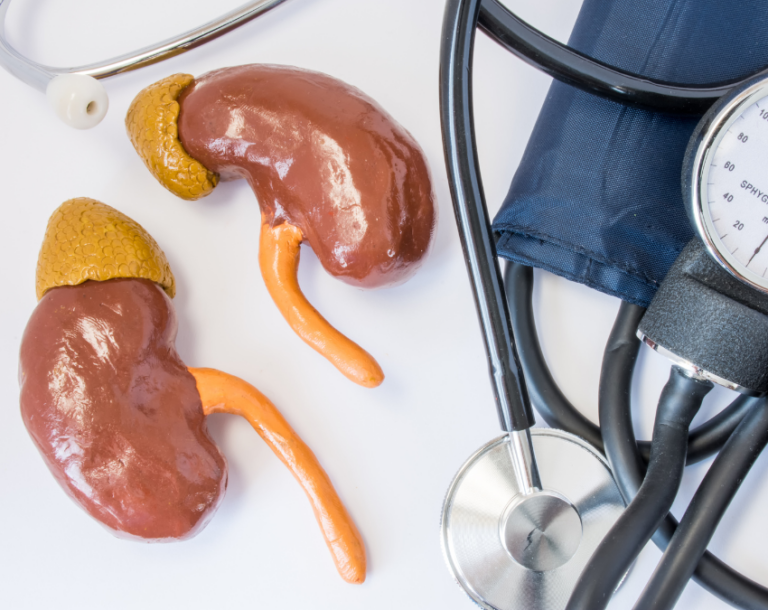
What are your tips and tricks to post-bariatric success?